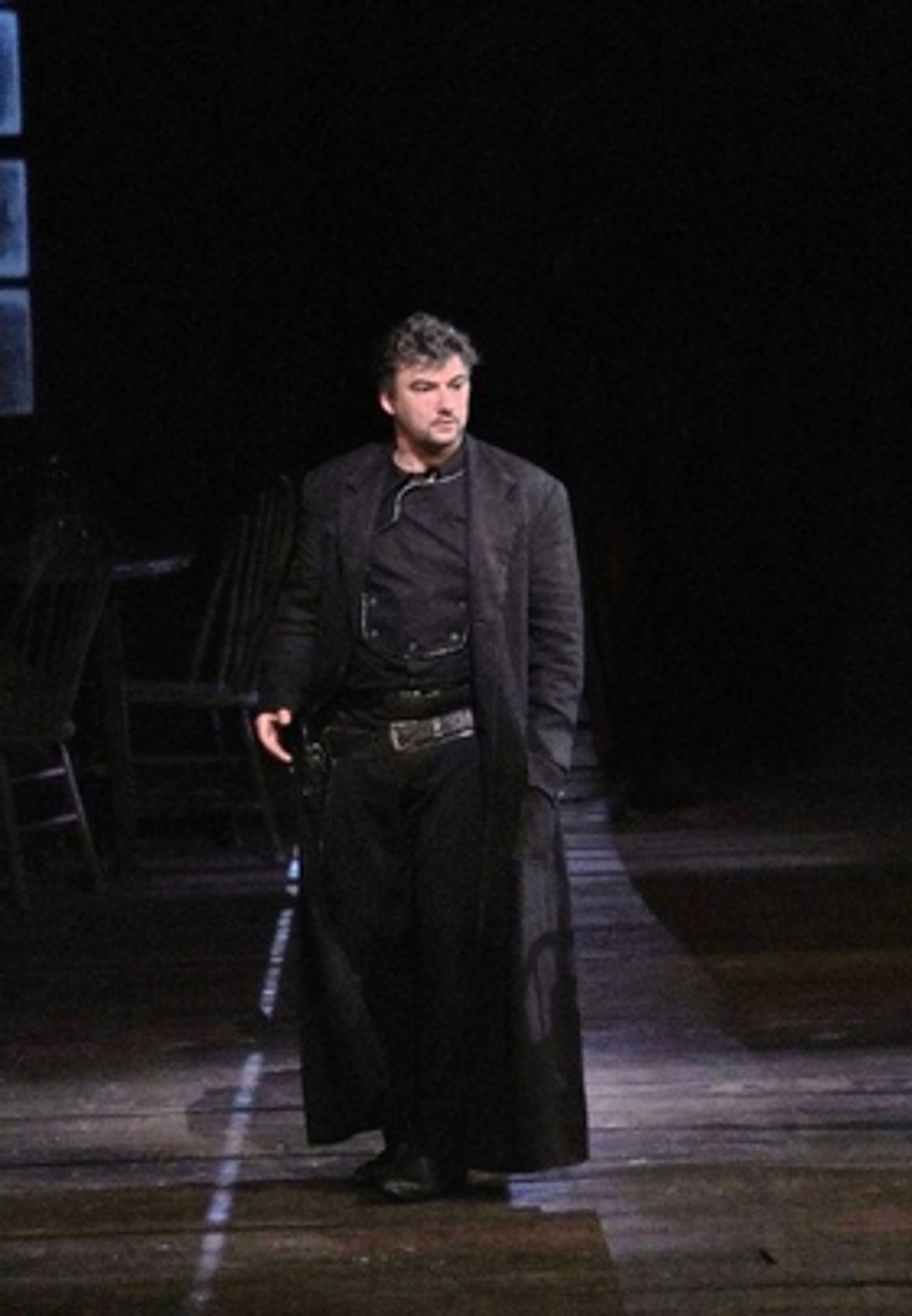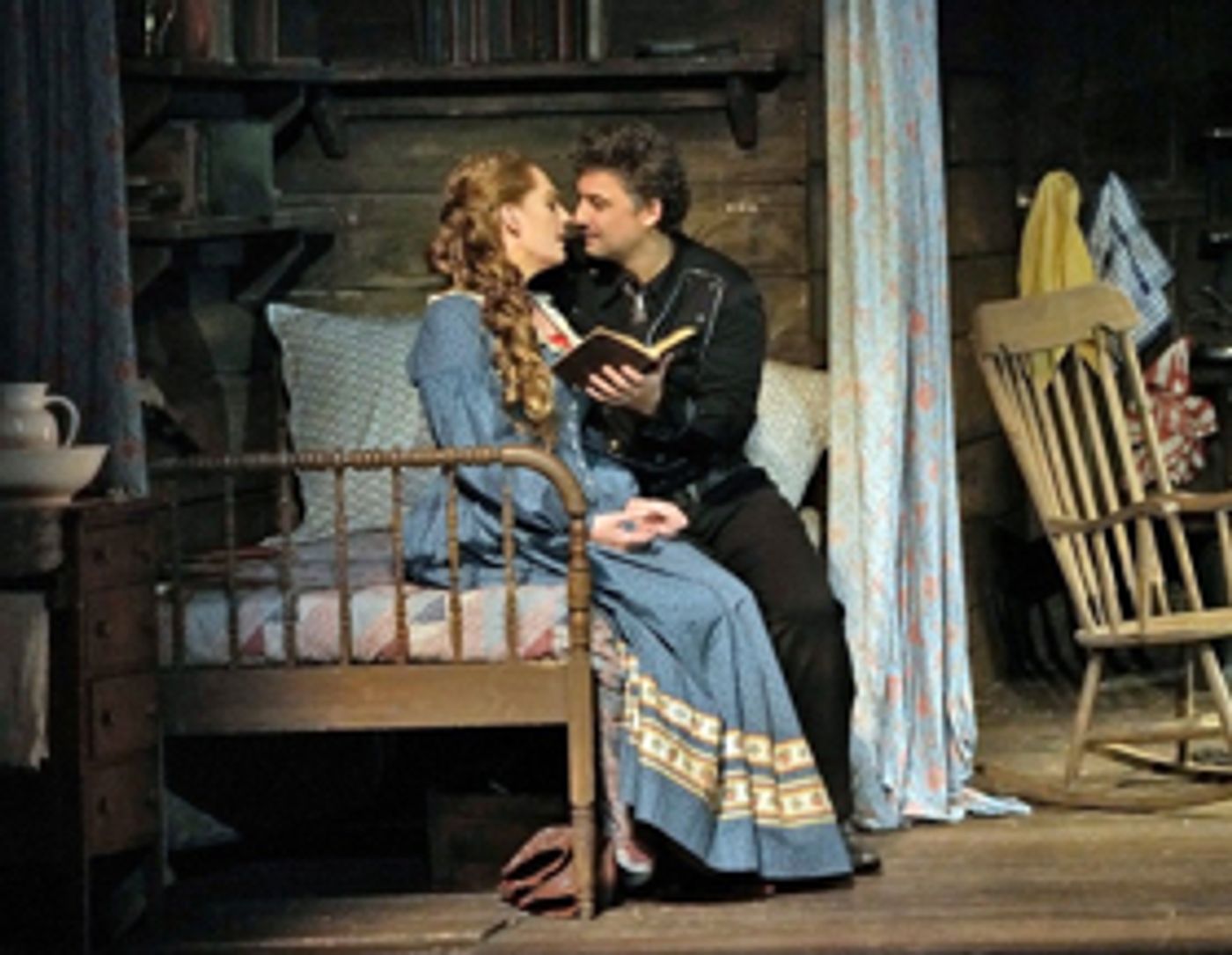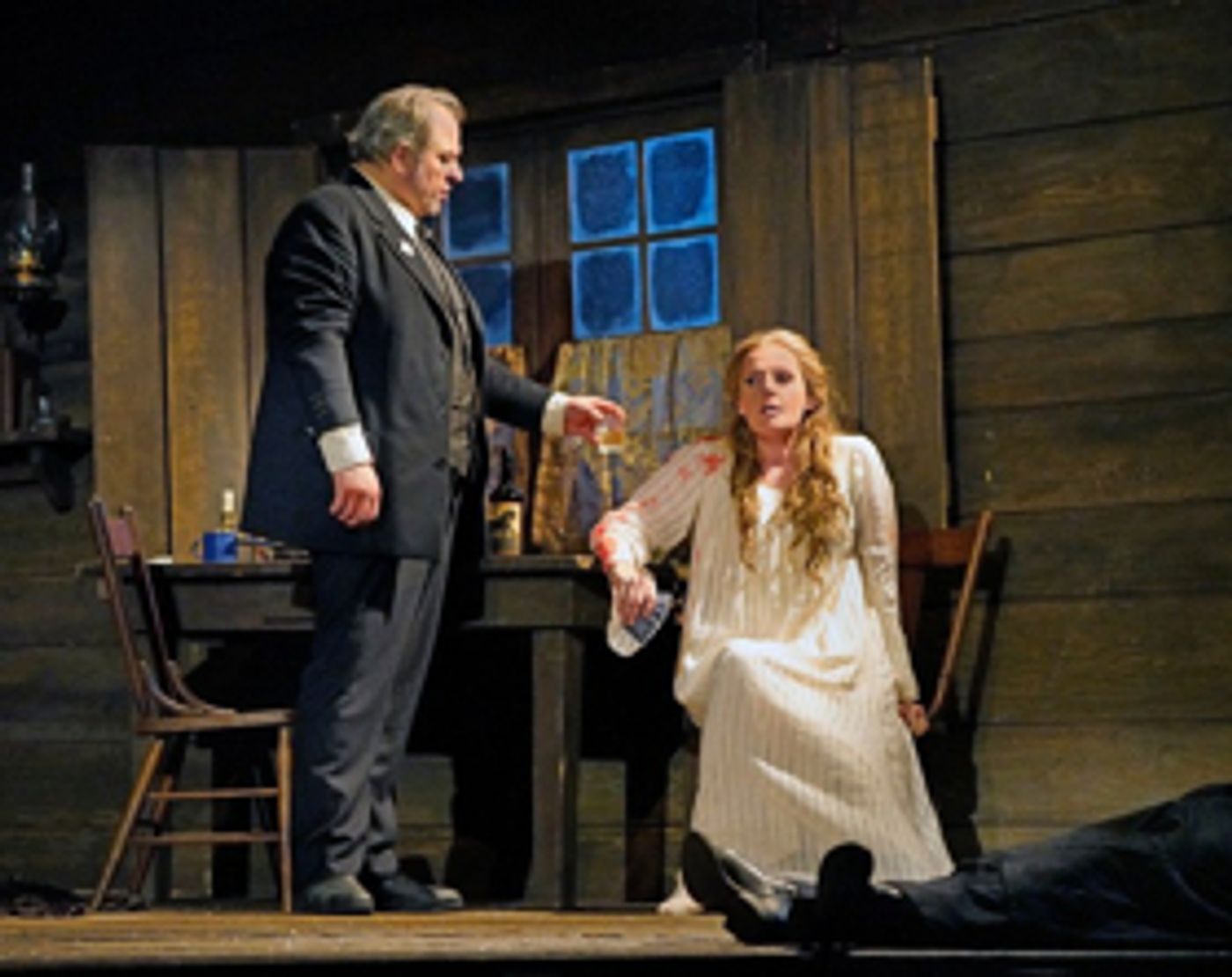Review: Kaufmann Returns to the Met with a 'Heigh-ho Silver' in Puccini's FANCIULLA DEL WEST

Photo: Ken Howard/Met Opera
Anyone who was expecting the equivalent of Bette Midler's arrival as Dolly in the Harmonia Gardens when Jonas Kaufmann finally returned to the Met, on October 17, after four years and some high-profile cancellations, must have been wildly disappointed.
Maybe New Yorkers have been disappointed too many times by the promise of Kaufmann unfulfilled--the last time was his cancellation of the entire run of then-new TOSCA and a clutch of CARMENs--that there was a kind of wait-and-see in the opera house on October 17, until way into his portrayal of Dick Johnson/Ramirez the bandit.
There was no applause to disrupt the Met orchestra under Marco Armiliato as the tenor slunk on stage when attention was elsewhere, in a performance that was midway into the fall's run of Puccini's LA FANCIULLA DEL WEST, with only a modest amount of rehearsal under his belt. (Netrebko's husband, tenor Yusif Eyvazov, reportedly had done some fine work since the production's first night on October 4.)
Oh sure, Kaufmann looked like a glamorous buckaroo compared to the rest of the Wild West cast in LA FANCIULLA DEL WEST, in what must be the least showy of Puccini's major tenor roles. Compared to some of the star tenor misfires already this season at the Met, he had a triumph; compared to Kaufmann at his best, well, things seemed a little low key. That is, until he let it rip in Act III's "Ch'ella mi creda," his ode to bar-keep Minnie (soprano Eva-Maria Westbroek) as he awaits execution by Sheriff Rance (baritone Zeljiko Lucic, in good voice) and the goldminers.
The baritonal quality of Kaufmann's voice, however, from the moment of his entrance was compelling and it lent heft and fascination to his scenes with Westbroek. Their physical chemistry was palpable during Act II's scene in her cabin, their attraction as sure as the composer must have imagined.

Photo: Ken Howard/Met Opera
Make no mistake. While FANCIULLA may not be particularly popular with audiences, this is no second-rate work. The composer wrote it specifically for the Met, and though he was going through some personal problems, they didn't show up in the score, where sex (among other emotions) shows up with alternating dissonance and sweetness. One could also hear strains of TOSCA and LA BOHEME at unexpected moments and foreshadowing of TURANDOT as well. (If you're going to steal, why not do it from the best.)
The Giancarlo del Monaco production, which debuted in 1991, might be considered the anti-Zeffirelli, with more than a little gray in Michael Scott's sets and costumes. (There wasn't a single visual effect to send the audience into swoons and applause.)
Yet, this time around, things moved along quite smoothly, under the revival's stage director, Gregory Keller, and the large ensemble of gold-seekers sang and acted admirably, though moving the clunky sets around led to two endless intermissions. Lucic might have been a less gruff than usual Sheriff, but it was good that the character, for once, seemed more than a minor league Scarpia, even when Minnie rejected his advances.

Kaufmann's feet). Photo: Ken Howard/Met Opera
However, for better or worse, the opera doesn't really belong to the tenor or the baritone: It's the Fanciulla--the Girl--of the title who takes center stage and the chemistry between soprano Westbroek and Kaufmann was palpable. She's a good actress, too (a top-drawer LADY MACBETH OF MTSENSK), so it's sad to report that her vocal health is far from solid these days, and, despite her Turandot-like volume, she missed a number of high notes, which was a real distraction.
The opera has a number of good feature roles and the Met cast did well by them. In particular, baritone Michael Todd Simpson was a fine Sonora, in probably the opera's best defined role, showing growth from blunt to poignant by the opera's finale. Bass Oren Gradus turned in a smoothly sung Jake, while tenor Carlo Bosi did well as the loyal Nick.
Conductor Armiliato tried to move things along, and the Met orchestra turned in a nuanced performance, but changing the old-fashioned set pushed the opera toward its breaking point by the end of the evening.
Halfway into the first act, I heard some familiar musical strains--and suddenly remembered that the melody had been stolen by Puccini from Andrew Lloyd Webber's "Music of the Night" in PHANTOM OF THE OPERA. Oh, wait: Puccini died 24 years before Webber was born. What could I have been thinking?
###
Further performances of LA FANCIULLA DEL WEST, where Kaufmann is scheduled, will be heard on Sat. Oct. 20 at 8, Tues. Oct. 23 at 7:30 and the Sat. matinee on Oct. 27, when the performance will be broadcast live to 2000 theatres in 73 countries around the world as part of the Met's Live in HD series. For more information, see the Met's website.
Reader Reviews
Videos

